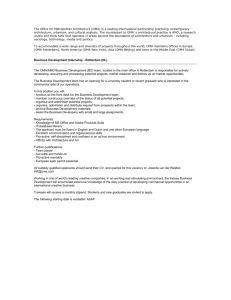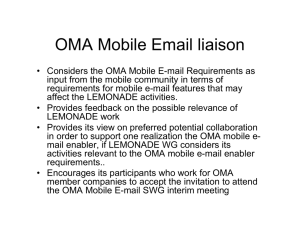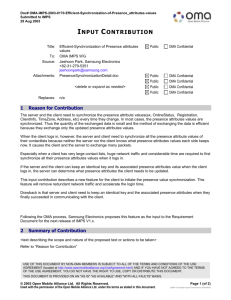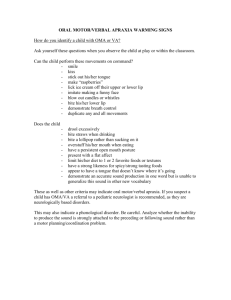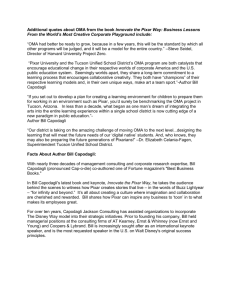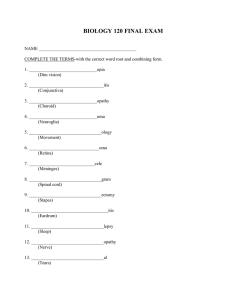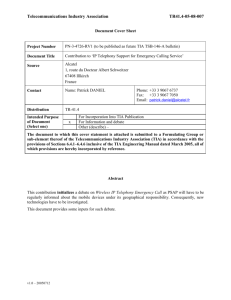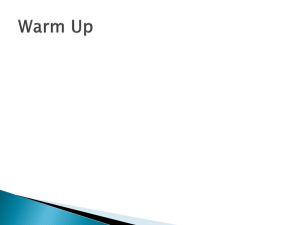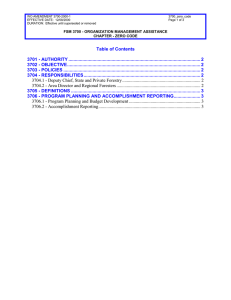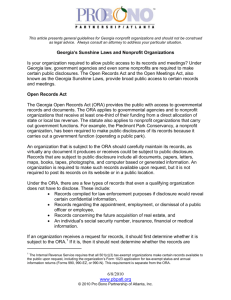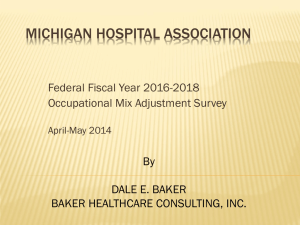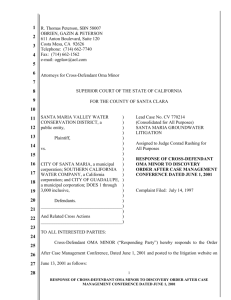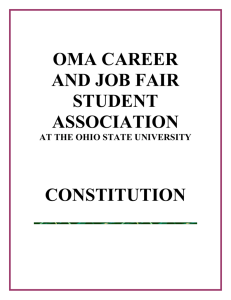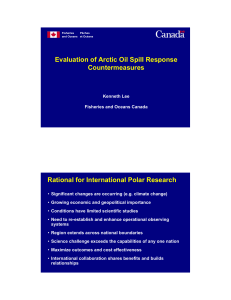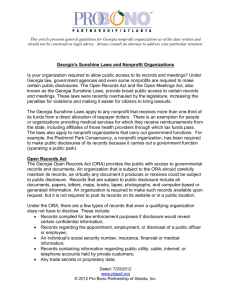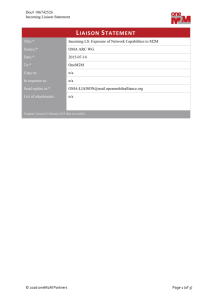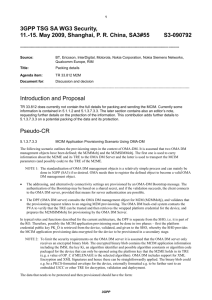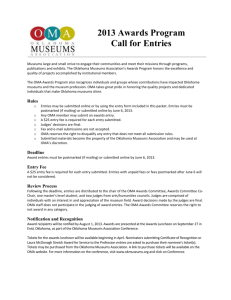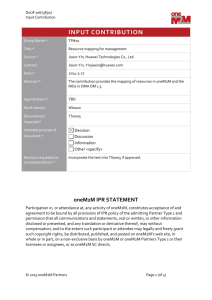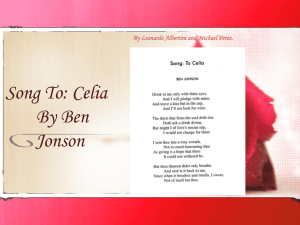Public Comment
advertisement
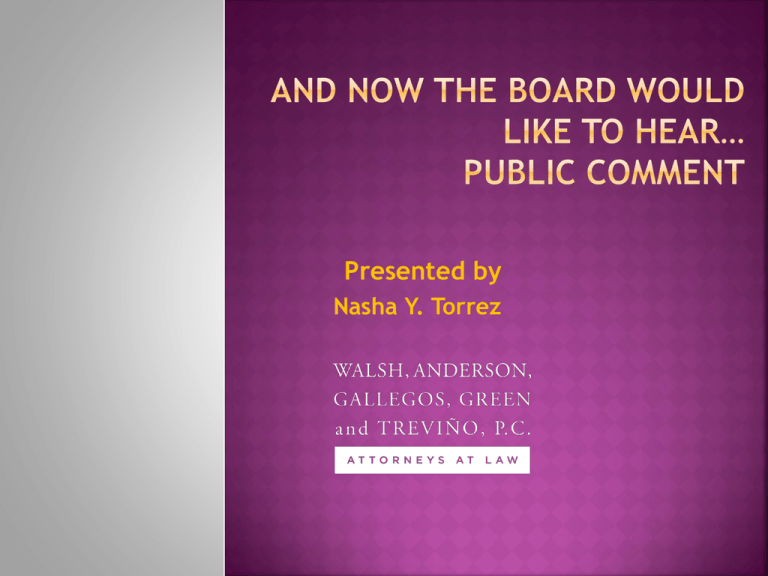
Presented by Nasha Y. Torrez Allows Community input. Helps the Board better understand the pulse of their constituents. Gives the District more balance in decision making. Can make for really long Board meetings. Can open doors for hurt feelings, negativity, and maybe even slander. Can be frustrating and a lot of work for the presiding officer. DEVELOPING A PLAN IN ADVANCE OF YOUR MEETINGS IS KEY. Both the U.S. & N.M. Constitutions prohibit governmental entities (like school districts) from taking any action to abridge a person’s freedom of speech. The District shall take no action abridging the freedom of speech or the right of the people to petition the Board for redress of grievances. U.S. Const. Amend. I, XIV; NM Const. art. I, § 17. Courts have interpreted this to mean that speech may be restricted as to the: Time, Place, and Manner BUT NOT on the basis of content of the speech or the message it conveys. The Board may create a limited public forum for the purpose of hearing comments from the public so long as: The Board does not discriminate against speech on the basis of viewpoint; 2. Any restrictions are reasonable in light of the purpose served by the forum; and 3. The Board provides alternative paths for expressing categories of protected speech that are excluded from the forum. 1. Limitations on comments must be reasonable: Subject Matter School-Related Sign up and state the school-related subject Personnel Issues May be more appropriate for a Closed Session under OMA. Performance of public employees is a matter of public concern. May be referred to grievance policy Be Consistent! See Handout page 3 for case law & more detail. The Open Meetings Act (“OMA”) provides that “all persons desiring shall be permitted to attend and listen to the deliberations and proceedings.” NMSA 1978 § 10-15-1(A) (1999). A local school board is not required under OMA to allow public participation or public comments at its meetings; rather, the law requires only that all board meetings be public, unless a closed session is permitted by the OMA. The NM AG has said generally that a school board may limit or decline to allow public debate and may take steps necessary to maintain public order at its meetings. The NM AG wrote that a school board president may permit, deny, or regulate public participation at a school board meeting, so long as the president has authority to do so under the board’s rules and so long as the board president does not act “arbitrarily or capriciously” and the board’s rules are not “unreasonable, arbitrary or capricious.” NM Att’y Gen. Op. 90-26. Decide what works best for your Board and community. Within the law and reason. Designate Public Comment time on the Agenda. Response for Topic Not on Agenda Can be at beginning or end of the meeting. Can set a time limit for the total amount of time allowed for Public Comment on the Agenda. Can be limited to regular meetings only, instead of Board Study Sessions (for example). Gives the community notice of what they can come and talk about. OMA. Recitation of existing policy in response to the inquiry. Proposal to add a topic to a future meeting. Response for Topic on the Agenda Reserve discussion until the agenda items is reached. Sign-up for all speakers before the meeting begins. Have copies of Board rules and policies regarding public comment. Board President should state rules, including the fact that matter may be referred to grievance process if appropriate. President may make a disclaimer and/or warning to make sure the public understands that the statements made during public comments time are the opinion of the speaker and not necessarily that of the Board members or staff. Everyone does not have to be allowed to speak. Repetitive comments can be limited. Time limits for all comments and for individual speakers can be set. Groups may designate spokesperson. Board President may enforce guidelines. Can a Repeat Speaker be Prohibited? By Topic? By Individual Speaker? Can refer speaker to grievance policy, if appropriate. CAUTION: Err on the side of allowing speech Some Criticism is to be Expected “Democracy at its Best and its Worst” Do not allow Personal Attacks of: Board Administration Others Prohibit Uncivil Conduct Yelling, Obscenities, Disruption Be Consistent… If names are allowed to praise a job well done, it will be difficult to justify prohibiting names to criticize conduct or a decision. Nasha Y. Torrez ntorrez@wabsa.com
